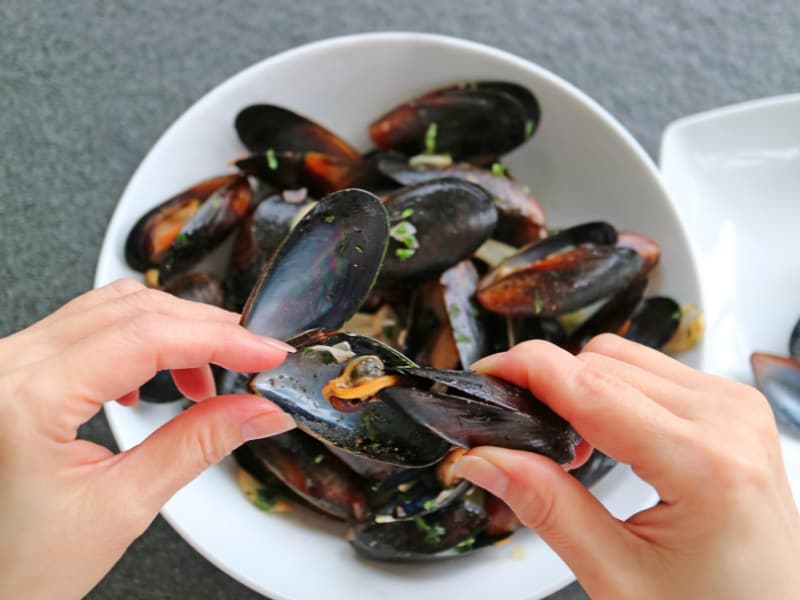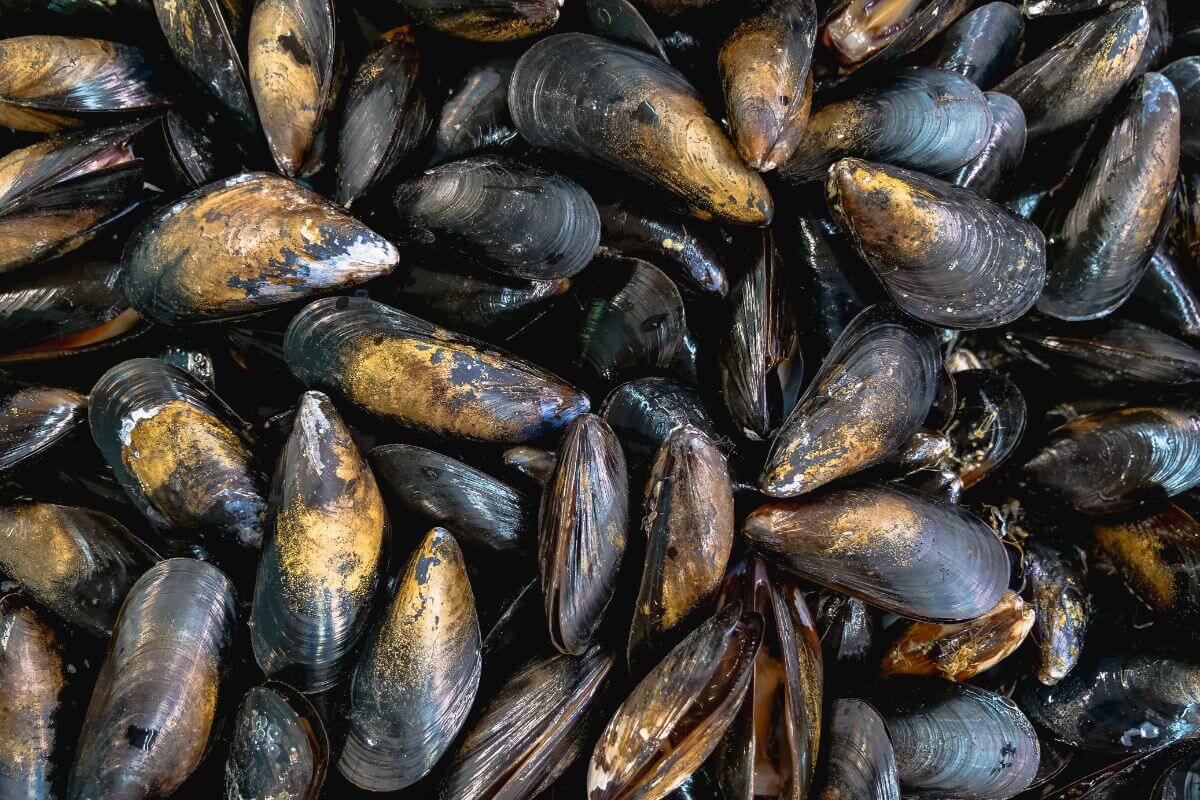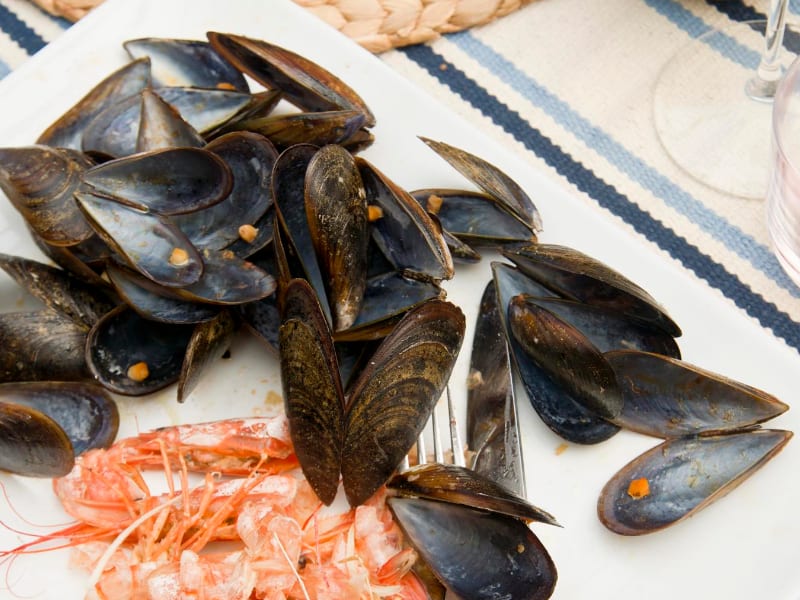Are you a mussel lover and wondering – Can you compost mussel shells?
I have some good news for you. Mussel shells are a great addition to your compost pile.
Learn more about mussel shells, if they’re biodegradable, how long they take to decompose and how good they are for the compost heap.
Can You Compost Mussel Shells?

Yes, mussel shells are compostable and can be added to your compost bin or pile. They will break down over time into a rich soil amendment. Mussel shells are made up of calcium carbonate, which is a natural component in many soils and will help you grow healthy plants.
Mussel shells are one of the most common items found in our oceans and rivers, and of course, seafood restaurants. Mussels are filter feeders that live on plankton and small organisms. When they die, their shells sink to the bottom where they become buried under sediment.
Anything organic can be composted, and mussel shells fall into the organic category. Not only can you compost mussel shells, but due to their many benefits, you should also be composting them!
Are Mussel Shells Biodegradable?
Mussel shells are organic and are biodegradable. As the sand on the beach is made up of tiny pieces of shell, as well as rock, you may find many mussel shells on the beach decomposing.
To be classed as biodegradable, a substance needs to be able to be composted by living organisms and bacteria. This decomposition happens much quicker if the shells are ground down first, although they would still eventually disintegrate if they were left whole (although it would take quite a long time).
How Long Does It Take For Mussel Shells to Decompose?

If the shells are crushed before adding them to the compost, decomposition can happen in a few weeks. However, if they are whole, they can take months to break down completely. The answer to this question depends on how the shells are composted and your method of composting.
If you are cold composting or don’t aerate your compost, shells of mussels can take years to break down – especially if they are added whole.
With a hot composter, mussel shells will decompose quickly. You can help the composting process by crushing them and mixing them into your compost.
Mussel shells are classed as a green material due to their nitrogen content. However, unlike most other green materials, they do not break down very quickly, and they do not add moisture to your compost.
Are Mussel Shells Good for Plants?
Mussel shells are great for plants. The shells contain many nutrients and minerals that are essential for healthy plant growth. Mussel shells are primarily made up of calcium carbonate. Calcium carbonate can neutralize acidic soil by raising the pH levels, which is great for any plants that love alkaline soil.
Calcium can strengthen a plant’s cell walls, improve nitrate uptake, and help enzyme formation. Increasing the calcium level can also be beneficial if you have any issues with blossom-end rot. Crushed mussel shells can also be added directly to the soil around your plants as a calcium-rich mulch.
Mussel shells can be very beneficial for many plants and have a lot of uses in the garden. Their nutrient content makes them perfect for composting, mulching, or as a fertilizer.
To create a calcium-rich fertilizer from your mussel shells, soak them in water and dilute a cupful of the water in your watering can each week. This liquid fertilizer can also be used on houseplants.
Alkaline-loving vegetables and flowers can benefit from a mulch of crushed shells. Although whole shells can also be used (and look more attractive), crushed shells have the added benefit of discouraging snails and slugs from getting to your plants.
Crushed shells will release the minerals into the soil more quickly, but whole shells do make an appealing decorative mulch for potted plants and borders.
Crushed (or whole) mussel shells can also be added to potting mixes to aid drainage.
Preparing Mussel Shells for Composting

As discussed earlier, whole mussel shells can take quite a while to break down, even in a hot composter. Because of this, it is important to prepare them correctly if you want to add them to your compost pile.
- Clean the shells thoroughly – If there is any residue or bits of meat still stuck to the shells, these can attract pests to your composter. Also, if they were salt-water mussels, giving them a good clean will wash off any salt residue that could be on the shells. Washing off salt residue is important as excess salt in soil can damage your plants.
- Crush the shells – The easiest and safest way to crush mussel shells is to place them in a bag on a hard surface. Then crush them with something heavy like a rolling pin, large rock, or a hammer. Keep hitting them until they are broken into gravelly pieces. Then empty the bag into the compost. Alternatively, cover them with a cloth, like an old towel. You can also put a material underneath the mussel shells, so you can then pick up the fabric with the crushed shells inside.
- Add to the compost – Once the mussel shells are completely crushed, you can add them to your composter. The smaller the pieces, the quicker the decomposition, but don’t worry if some pieces are slightly bigger than others. Mix the crushed shells into your compost to ensure they break down as quickly as possible. Some gardeners add them to the center of your pile, while others layer them between nitrogen-rich materials. But however way you add them, they will break down as long as they are crushed and mixed in with other materials.
Composting Mussel Shells Final Thoughts
Mussels are delicious, nutritious, affordable, and compostable. Mussel shells are also a great source of calcium, which helps grow strong and healthy plants. And if you have access to a compost bin, you can easily turn mussel shells into a nutrient-rich fertilizer or mulch for your garden bed.
For more on composting materials, check out these articles:

